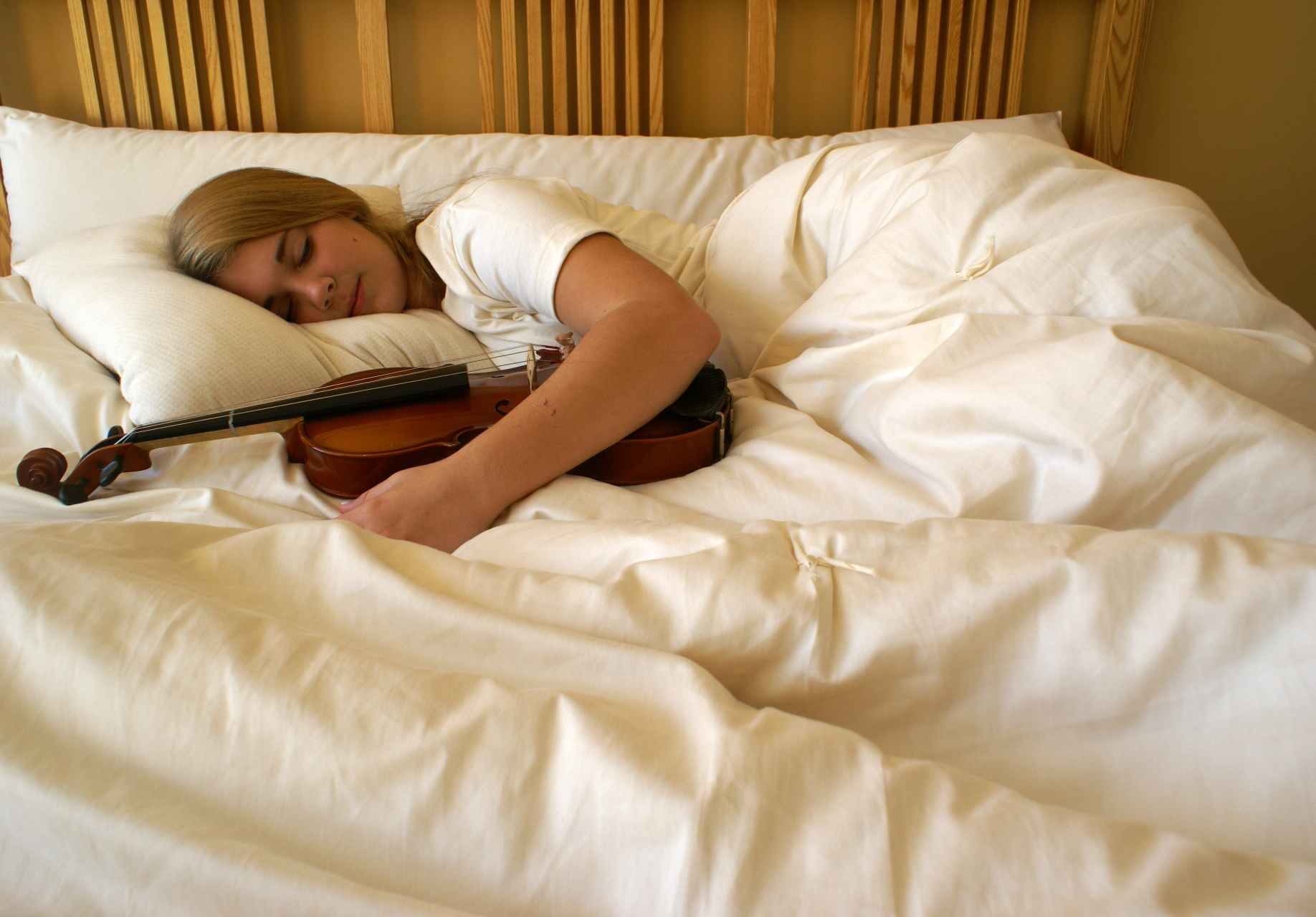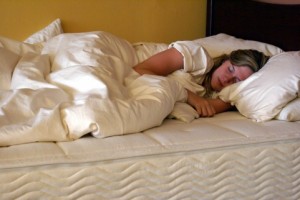If parents and students alike are curious about the effects of sleep on school performance, the answers are very clear. When a child – or an adult – does not get the proper amount of sleep then they are likely to do worse in overall achievements.
Many people use the term “brain food” when referring to meals or snacks that they enjoy during studying or other activities. However, while food is very important for the brain to function, and other parts of the body, it is imperative to get the rest that your body deserves. The food that out brain craves most is SLEEP!
The average teen needs about nine and a quarter hours of sleep each night to function at their highest level and many of them do not get it. In a recent study only 15% of teens attending school get the proper amount of rest needed. Going without a sufficient amount of sleep can influence a child’s mood in and out of the classroom. When a child wants to learn it will show and when a student is fantasizing about sleep in the middle of a chemistry class than they are more likely to spill the chemicals all over the place, or blow up the building than a student who has endured the proper amount of rest and is awake and ready to take on the world one chemistry experiment at a time. Now, while this example may seem a little extreme it does not deter from the fact that students grades are likely to suffer because of the lack of shuteye they may get throughout the week.
While these apprehensions about school performance are important what is most alarming is the quality of life of these students who do not meet an acceptable range of sleep each night. Many think that they can simply ‘catch up’ on overdue sleep when the weekend arrives and their assumptions are faulty because one is not sticking true to their internal biological clock that tells them when and when they should not be sleeping. The decrease in ambition and sound mind is even more prevalent in those involved in sports!
Athletes should be receiving the most sleep out of the student body and yet they are typically the ones that get the least. This is because sports programs tend to run into the evening and after all is said and done in that aspect of a students life they may struggle for many hours into the night on homework assignments that vary by the level of classes that they take. On the weekends these athletes are usually expected to rise and shine before the sun does and this can be hard on the persons physical and mental capabilities.
When a student is being awakened in the middle of a sleep cycle they tend to be more groggy and less open minded about the day ahead of them. This attitude follows them through their classes, their athletics, their jobs, and any other activities that they are accustomed to. Although many factors that contribute to this phenomena are somewhat social, a great deal are primarily biological.
Light can factor into the equation because when a body is surrounded by light the body knows not to produce a substantial amount of melatonin (Which is a key chemical produced by the brain that makes the body drowsy), this is due to the fact that in general our body’s are awake when the sun is shining and at rest when it is not. A good way to treat this is to TURN OFF THE LIGHTS!
Teens all over the world can take simple steps such as the one listed at the end of the previous paragraph. Others can include prioritizing sleep over social habits such as going onto Facebook or staying up late texting (when we are exposed to light-emitting screens we tend to feel less drowsy.) Perhaps taking a night off of your sports activities can help you get ahead on schoolwork that might have otherwise been put off because of athletics. This way you will be able to manage both your sports and studies for the rest of the week. School systems can do their part in assuring their students rest which would ultimately increase over passing rates for the school.
In a recent study it was shown that schools who had switched their start time from 7:15 to 8:40 reported a higher attendance rate and less students sleeping in class. Another statistic shown in this study was that the student depression rate went down! Is depression not something that teens especially must be careful about – what with all of their hormones raging inside of them all of the time!
These are all plausible ways to increase a students hours of rest, the best thing to do is to maintain a consistent bed time. With a persistent and rational sleep schedule your body will learn to adapt to everything else that it must endure throughout the day and the feelings of drowsiness and fatigue may not completely fade away, however, you will find that this will benefit your mood and behavior in many aspects of your life and your body and mind alike will thank you for it. Give it a try – it can’t hurt!
 Eric is currently a student and part-time team member for Norfolk, VA based business Organic Comfort Zone, manufacturers of CozyPure organic bedding and mattress. For more information visit organiccomfortzone.com or cozypure.com or call 757.480.8500.
Eric is currently a student and part-time team member for Norfolk, VA based business Organic Comfort Zone, manufacturers of CozyPure organic bedding and mattress. For more information visit organiccomfortzone.com or cozypure.com or call 757.480.8500.


Pingback:Snooze Forever
Pingback:Eat, Breath, and Sleep: Happy